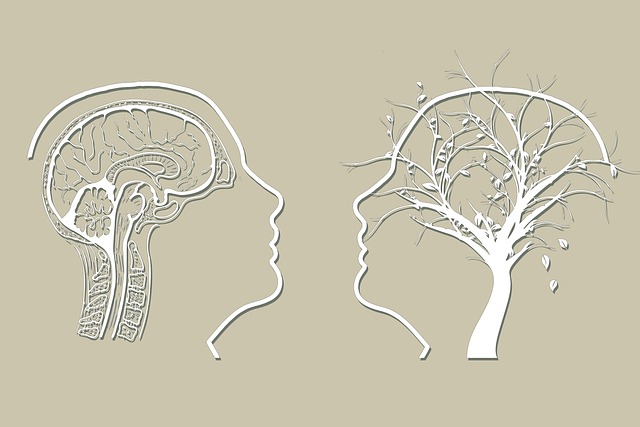Longmont Young Adults Therapy utilizes the RFM (Resilience, Flexibility, Motivation) approach to build clients' emotional resilience by addressing relationships, functional behaviors, and deeper meanings. This holistic method includes workshops on stress management, purpose-driven activities, and structured therapy sessions, empowering young adults with tailored coping strategies and a sense of self. Through comprehensive assessments and gap analysis, the therapy team implements specific RFM exercises, focusing on mindfulness, positive thinking, and confidence-boosting activities. Success is measured by clients' improved communication, stress management, and emotional healing processes, tracked through regular evaluations. This innovative approach fosters adaptability, mental wellness, and personal growth in a supportive environment.
In today’s fast-paced world, equipping young adults with resilience is paramount. This article explores how RFM (Resilience, Flexibility, and Mastery) exercises can significantly enhance Longmont young adults’ therapy. We delve into the foundational concepts of RFM and its therapeutic benefits, offering tailored exercises for Longmont clients. A structured framework for implementation guides practitioners in fostering adaptability. Overcoming challenges and measuring success ensures optimal outcomes. Discover how these strategies revolutionize Longmont young adults therapy, empowering individuals to navigate life’s storms with resilience.
- Understanding RFM and its Role in Young Adult Therapy
- Identifying Resilience-Building Exercises for Longmont Clients
- Creating a Structured Framework for Implementation
- Overcoming Challenges and Measuring Success
- The Impact of RFM on Longmont Young Adults' Wellbeing
Understanding RFM and its Role in Young Adult Therapy

In the realm of Longmont Young Adults Therapy, Understanding RFM (Relational, Functional, and Meanings-focused) is pivotal for fostering resilience among young adults. This therapeutic approach recognizes that emotional well-being promotion techniques are not one-size-fits-all; instead, they must navigate the intricate web of relationships, functional behaviors, and deeper meanings that shape an individual’s life. By integrating Conflict Resolution Techniques and tailoring interventions to each client’s unique narrative, therapists can empower young adults to manage stress effectively and build lasting resilience.
RFM focuses on identifying and modifying relational patterns that may contribute to ongoing stress and conflict, teaching valuable Stress Management Workshops Organization strategies along the way. This holistic approach not only equips young adults with practical tools for navigating challenging situations but also helps them develop a deeper sense of self and purpose, laying the groundwork for sustained emotional resilience.
Identifying Resilience-Building Exercises for Longmont Clients

Resilience is a vital asset for individuals navigating life’s challenges, and Longmont Young Adults Therapy aims to equip clients with effective tools to foster this quality. Identifying suitable resilience-building exercises involves understanding the unique needs and interests of each individual. For instance, some clients may benefit from empathy-building strategies, learning to connect with their emotions and those of others. These activities can enhance social connections and emotional intelligence. On the other hand, stress management workshops teach practical techniques to cope with life’s demands, promoting a sense of control and resilience.
The organization offers a range of options, including group sessions focused on positive thinking and mindset shifts, which can empower clients to view setbacks as opportunities for growth. By tailoring these exercises to their demographics, Longmont Young Adults Therapy ensures that the strategies implemented are both relevant and impactful, fostering resilience in a supportive environment.
Creating a Structured Framework for Implementation

Implementing a structured framework is essential for effectively introducing RFM (Resilience, Flexibility, and Motivation) exercises in Longmont Young Adults Therapy settings. This involves carefully designing a step-by-step plan that aligns with the organization’s goals and the unique needs of the young adults. The first step is to assess the current resources, staff capabilities, and existing programs to identify any gaps or areas for improvement.
Once identified, the framework should outline specific RFM exercises tailored to address these gaps. For instance, organizing Stress Management Workshops can introduce mindfulness techniques, breathing exercises, and stress reduction methods to enhance resilience. Additionally, incorporating confidence-boosting activities within the framework can empower young adults to navigate challenges with a positive mindset. This structured approach ensures that the implementation process is systematic, comprehensive, and tailored to the target audience, fostering a supportive environment for building resilience.
Overcoming Challenges and Measuring Success

Overcoming challenges is a vital step in any transformation journey, and Longmont Young Adults Therapy offers tailored strategies to empower individuals through resilience-building exercises. These activities are designed to equip young adults with effective coping mechanisms, enhancing their ability to navigate life’s hurdles. By participating in structured therapy sessions, clients develop emotional healing processes that foster adaptability and mental wellness.
Measuring success within this context goes beyond traditional metrics. It involves observing clients’ progress in applying communication strategies learned during sessions, as well as their overall improvement in managing stress and emotions. The Longmont Young Adults Therapy team tracks these subtle shifts, ensuring the effectiveness of the implemented exercises. This holistic approach, combined with the Mental Wellness Podcast Series Production, provides a comprehensive framework to support young adults on their path to resilience and personal growth.
The Impact of RFM on Longmont Young Adults' Wellbeing

In Longmont, young adults are increasingly turning to therapy and resilience-building exercises to enhance their overall wellbeing. This trend is largely driven by the recognition that mental health is as vital as physical health. The Resilience, Frequency, and Motivation (RFM) model has emerged as a powerful tool in this context. By focusing on these three key factors, RFM helps young adults develop positive thinking patterns and effective stress reduction methods, thereby fostering resilience. This proactive approach not only prevents depression but also equips individuals with the mental fortitude to navigate life’s challenges head-on.
The implementation of RFM in Longmont Young Adults Therapy has shown promising results. Through structured exercises that encourage frequent reflection on personal motivations and strengths, participants are learning to cultivate a positive mindset. This shift in perspective empowers them to better cope with stress and adversity, building resilience that can last a lifetime. By integrating these practices into their daily routines, young adults in Longmont are not just surviving but thriving, setting the stage for improved mental health outcomes and enhanced quality of life.














